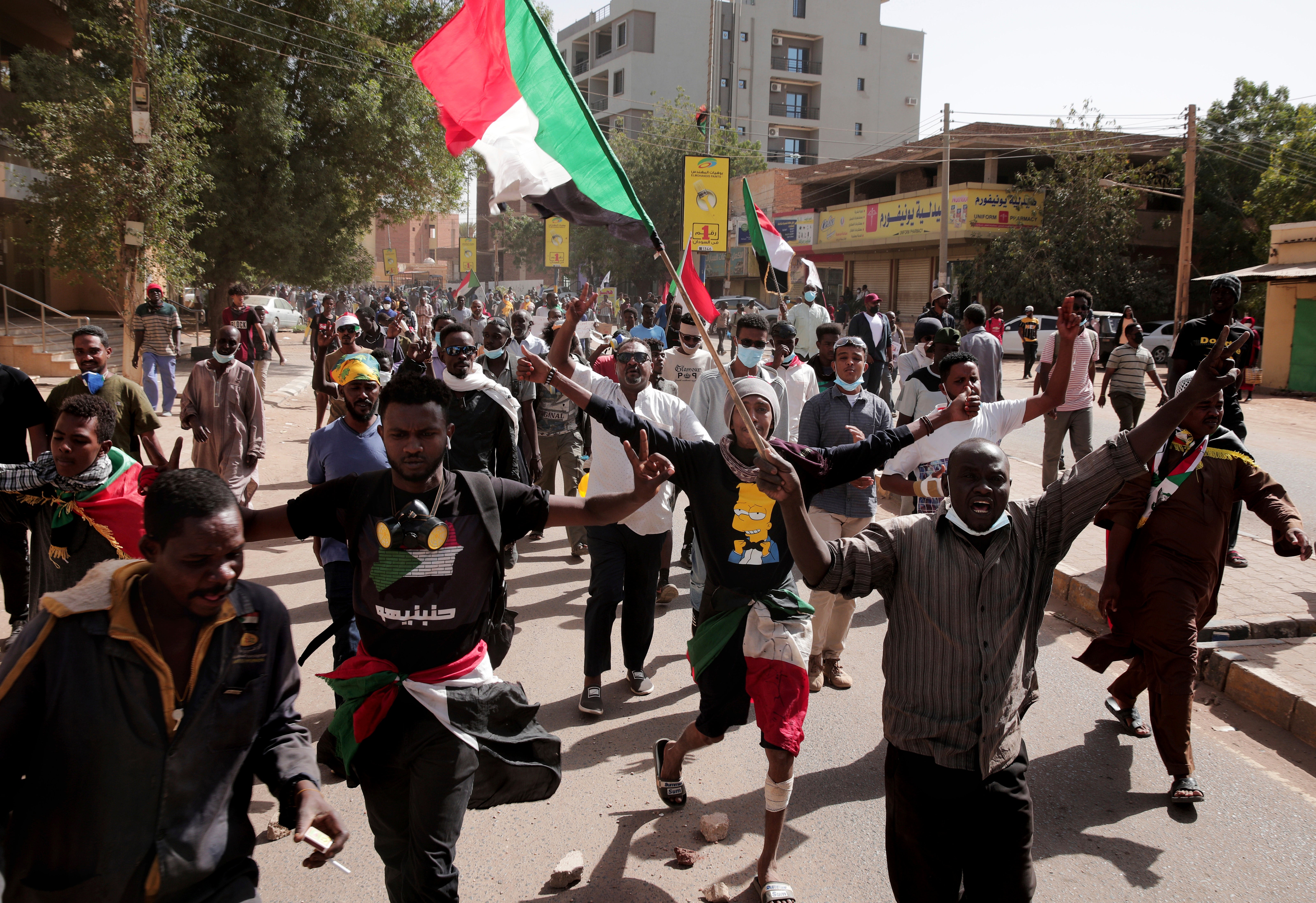Several protesters killed in Sudan in fresh anti-coup rallies
Activists say Sudanese forces killed seven people and injured 100 others after opening fire on protests

Your support helps us to tell the story
From reproductive rights to climate change to Big Tech, The Independent is on the ground when the story is developing. Whether it's investigating the financials of Elon Musk's pro-Trump PAC or producing our latest documentary, 'The A Word', which shines a light on the American women fighting for reproductive rights, we know how important it is to parse out the facts from the messaging.
At such a critical moment in US history, we need reporters on the ground. Your donation allows us to keep sending journalists to speak to both sides of the story.
The Independent is trusted by Americans across the entire political spectrum. And unlike many other quality news outlets, we choose not to lock Americans out of our reporting and analysis with paywalls. We believe quality journalism should be available to everyone, paid for by those who can afford it.
Your support makes all the difference.Sudanese security forces opened fire on protesters on Monday, killing at least seven people and wounding around 100 others in the country’s capital in one of the deadliest days since an October military coup, according to activists.
Thousands of people had once again flooded the streets of Khartoum and elsewhere in Sudan to denounce the 25 October military takeover that scuttled hopes of a peaceful transition to democracy.
The coup came more than two years after a popular uprising forced the removal of longtime autocrat Omar al-Bashir and his Islamist government in April 2019.
The turmoil has been amplified after Prime Minister Abdalla Hamdok stepped down earlier this month.
Mr Hamdok, the civilian face of Sudan’s transitional government, resigned after his efforts to bridge the gap between the generals and the country’s pro-democracy movement failed.
Monday’s deaths bring to at least 71 the number of people killed in near-daily demonstrations in Khartoum and other cities and towns in Sudan.
Footage circulating online shows protesters, mostly young people, marching in the streets of Khartoum and its twin city of Omdurman. There were also protests in Port Sudan, Wad Madani Obaid and the western Darfur region.
“I’m here today to resist the military coup,” protester Hamed al-Ser told the Associated Press. “We hope our free revolution reaches the democratic civilian path.”
Activist Nazim Sirag said seven protesters were killed when security forces opened fire to break up several marches in the capital, including in the area around the presidential palace. He also said many people were wounded by gunshots.
The Sudan Doctors Committee, which is part of the pro-democracy movement, also reported the deaths and said around 100 protesters were wounded in Khartoum.
The pro-democracy movement condemned Monday’s deadly shootings and called for a two-day civil disobedience campaign over the security forces’ actions.
Faisal Saleh, a former information minister and Hamdok’s advisor, said the killings were “a full-fledged crime,” and urged the international community to act.
“The Sudanese people do not face an arbitrary government or authority, but rather a criminal gang that kills the youth of Sudan in cold blood, and the whole world is watching,” Saleh wrote on Twitter.
The fatalities will likely further complicate UN efforts to find a way out of the ongoing crisis. The UN mission in Sudan started holding separate consultations earlier this month with various Sudanese groups, including the military, to “prepare the ground for a process capable of securing agreement ... on the way forward for the democratic transition in Sudan.”
The United Nations and Western governments have widely condemned the crackdown on protesters, and called for those responsible be held accountable.
The demonstrations are called by the Sudanese Professionals Association and the Resistance Committees, which were the backbone of the uprising against Mr al-Bashir. The two groups reject negotiations with the military, insisting it hand over power to a fully civilian government to lead the transition.
The generals, meanwhile, reject the protesters’ demands, saying that power will be handed over only to an elected government.
Associated Press


